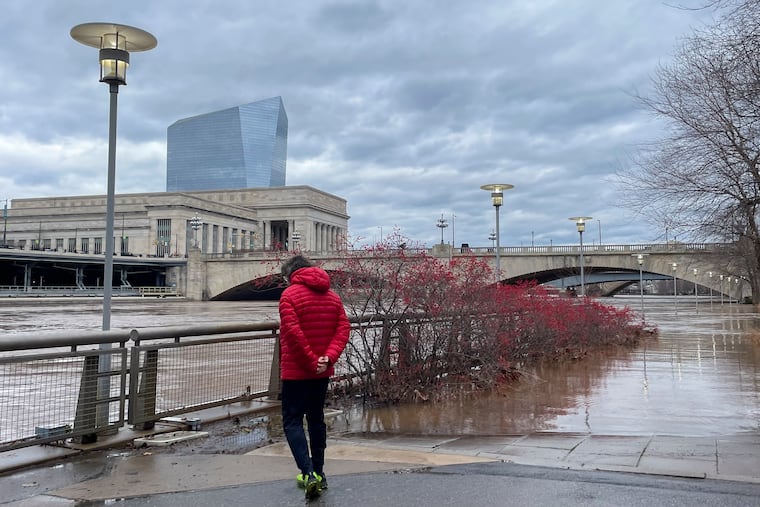How Philly-area residents can financially prepare for natural disasters
Experts from disaster research centers at the University of Delaware and Millersville University share tips on how to be ready for disasters in the Northeast.

As residents of Los Angeles recover from wildfires, the devastating stories of families’ physical, emotional, and financial losses may have some Philadelphia-area residents wondering if they should be concerned about similar destruction someday — and financially prepared.
But don’t panic, said Sepi Yalda, director of Millersville University’s Center for Disaster Research and Education, and James Kendra, director of the Disaster Research Center at the University of Delaware. Just be prepared.
“It’s not a question of being alarmist,” Kendra said. “It’s a question of trying to be as informed as possible about the local environment where we live.”
These disaster experts talked to The Inquirer about just how concerned Philadelphians should be about the risk of natural disasters, and how the region’s residents can financially prepare for storms and other emergencies.
What disasters could Philadelphia face?
“We have a wide spectrum of potential hazards, ranging from very serious coastal storms, hurricanes, flooding events,” said Kendra, a professor at the Joseph R. Biden Jr. School of Public Policy and Administration. “New Jersey has had wildfires.”
And of course, he added, the entire area is keenly familiar with extreme cold, such as what the Philly area experienced earlier this week, and extreme heat.
Of potential natural disasters, however, flooding and flash flooding are the most pressing concerns for Pennsylvania and the Philadelphia area, said Yalda, a professor of meteorology. And the second most pressing is extreme heat, especially in urban heat islands like Philly.
How can I prepare financially for a disaster?
In the Philadelphia area, the smartest thing you can do is check your area’s flood risk and, if within your budget, invest in flood insurance, experts recommend. Flood insurance typically isn’t included in a homeowner’s or renter’s policy.
You can use the resources on FEMA’s website, floodsmart.gov, including by calculating your area’s risk at floodsmart.gov/flood-risk, or search “calculate your flood risk” to find other helpful tools, such as those on Yale Climate Connections.
Remaining risk-aware is also key to keeping you safe and potentially reducing damages. You can do that by signing up for local alerts. In Philly, you can sign up for the ReadyPhiladelphia notification system by texting ReadyPhila to 888-777.
It’s wise, too, to keep physical copies of important documents in a safe, accessible place, such as a waterproof box, Kendra said.
Some consumers still like old-fashioned safe-deposit boxes, but big banks are phasing those out.
Think about “if there was a disaster, how would you demonstrate your residency?” he said. These include “things that show who they are, things that show where they lived — mortgage information, renter’s agreement or leases.”
Don’t rely only on phone photos or digital copies of important documents, as your phone could be unusable in a disaster, Kendra said. He recommends storing documents both digitally and physically.
“Almost all of our studies find that some redundancy is the key to being resilient,” Kendra said.